Rage Against the Machine Guitarist Honored With Woody Guthrie Prize
Tom Morello Has Nobly Carried on the American Protest Music Tradition
Tom Morello holds up the Woody Guthrie Prize at Cain’s Ballroom in Tulsa, Oklahoma, on September 25. [Source: Photo courtesy of Jeremy Kuzmarov]
Originally published at CovertAction Magazine.
On September 25, former Rage Against the Machine guitarist Tom Morello was honored with the Woody Guthrie Prize in Tulsa, Oklahoma, for using his music to support social justice causes.
Morello received the prize from Woody Guthrie’s granddaughter Anna Canoni, who said that “Tom and Woody are connected. Both lent their musical talents to the fight against fascism and racism…Woody saw himself as an educator and Tom has been out there educating people too and raising hell.”
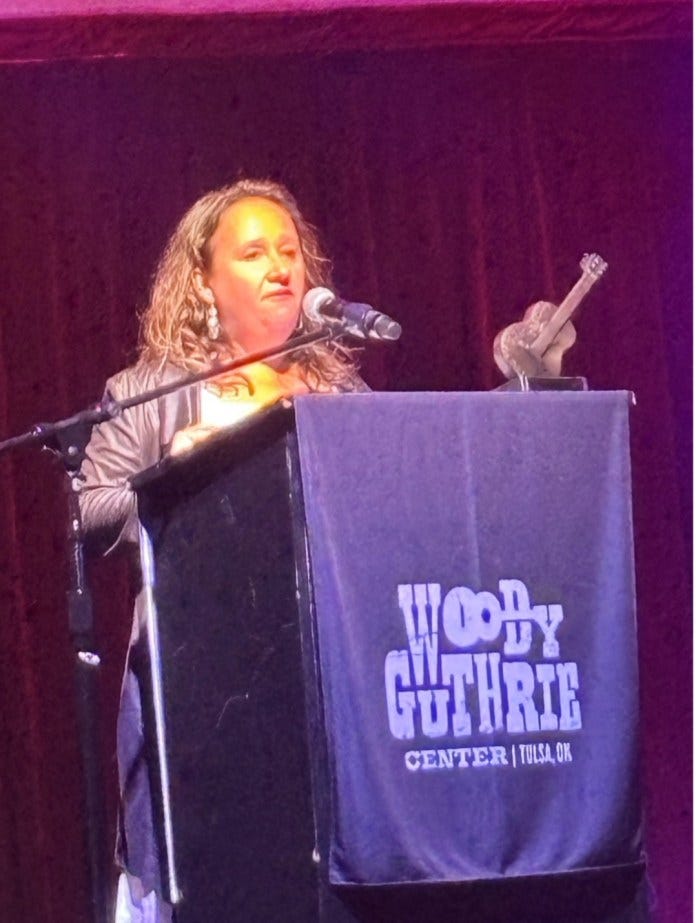
Woody Guthrie was a legendary U.S. folk singer from Okemah, Oklahoma, who supported left-wing causes during the Depression and New Deal eras and wrote an anthem against the Korean War that inspired his son Arlo’s counterculture, anti-Vietnam War, classic “Alice’s Restaurant.”
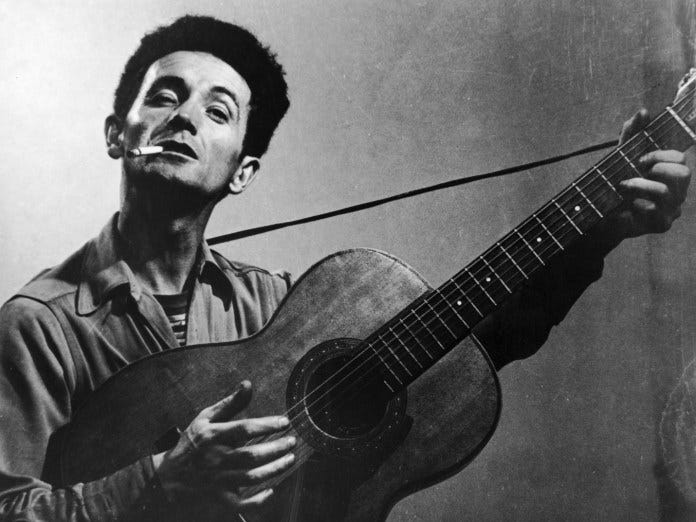

Morello has followed in Woody’s footsteps since he first gained a national reputation in the 1990s as the lead guitarist for Rage Against the Machine, a punk rock band that adopted politically subversive lyrics.
After receiving the Guthrie Prize, Morello performed renditions of classic Guthrie songs, and songs of his own, before an audience of several hundred people at Cain’s Ballroom in Tulsa.
The event was sponsored by the Woody Guthrie Museum, which was founded a decade ago to honor Woody’s legacy when he had been blacklisted in his home state during his lifetime (Woody died in 1957 at the heart of the McCarthy Era).
One of the songs that Morello performed in Guthrie’s spirit, “The Night Watchman: No One Left,” provided a tribute to the victims of 9/11 and criminal U.S. invasion of Iraq in 2003.
The chorus of the song—which Morello dedicated to the children of Gaza—goes as follows:
Each one had a father
There’s no one left
A name and a mother
No one left
Each one had a dream
A prayer on their breath
The world’s gone black
No one left
Other songs that Morello sang paid tribute to radical labor activists who had led strikes against large corporations and faced repression as a consequence.
At the end of the event, Morello invited audience members onto the stage to sing Woody’s famous anthem, “This Land Is Your Land,” adding a censored verse in which Woody amplified the high levels of inequality endemic to American capitalism and supported socialistic government programs.
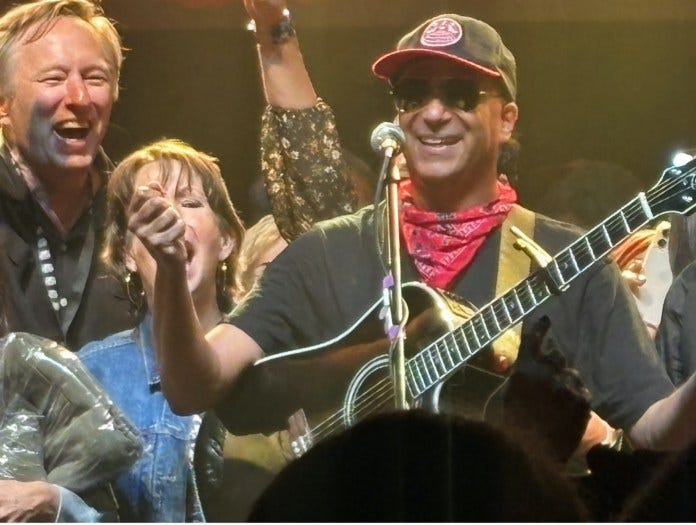
During a speech before the start of the event, Morello said that he had been “auditioning for the Woody Guthrie Prize my whole life.”
Morello described how he came from a family of coal miners in Central Illinois who were active in labor struggles and how he had become an anarchist as a youth and wanted to give support to labor and other social justice struggles with his music—just like Woody Guthrie had.
Rage Against the Machine’s debut album in 1991 featured the famous image from the Vietnam War era of Buddhist monks burning themselves to death to protest the atrocities of the U.S.-backed client regime in South Vietnam led by Ngo Dinh Diem.

The lead song in the album, “Killing in the Name,” was inspired by the beating of Rodney King by LAPD officers in 1992 (which precipitated a riot) and protested police brutality. Another song, “Bomb Track” criticized landlords and other “power whores” for “burning us all.”
Rage Against the Machine’s second album was titled Evil Empire in a rebuke of 1980s President Ronald Reagan’s attempt to revitalize the Cold War.
A song on the album, “Vietnow,” compared CIA interventions in Central America under Ronald Reagan with the Vietnam War and proclaimed that “terror is the product that they [the CIA] push.” Another verse depicted CIA operative Oliver North as a “devil…running around Managua [capital of Nicaragua] with a sword.”
The language in the song was reminiscent of songs by Woody Guthrie, who mocked war-mongering generals and politicians from his day like Douglas MacArthur and Harry S. Truman, whom Guthrie depicted as an enemy of the working class.
The Evil Empire album included the song “People of the Sun,” which celebrated the leftist Zapatista Revolution in Mexico and referenced the destruction of the Aztec empire by the Spanish. The last song, “Without a Face,” described the hardship and injustice faced by Mexican immigrants in the U.S.

These songs resonate with Woody Guthrie, who also wrote about the plight of Mexican immigrants and cruelty directed against them—including in the song “Deportee,” about Mexican farmworkers who were part of the “bracero,” or guest-worker program, and were killed in a 1948 plane crash after being mistreated.
During an on-stage discussion with labor journalist Kim Kelly, Morello emphasized that Woody’s anthem “This Land Is Your Land” can be read today as a rebuke to the incendiary anti-immigration sentiment being stoked by political demagogues like Donald Trump.

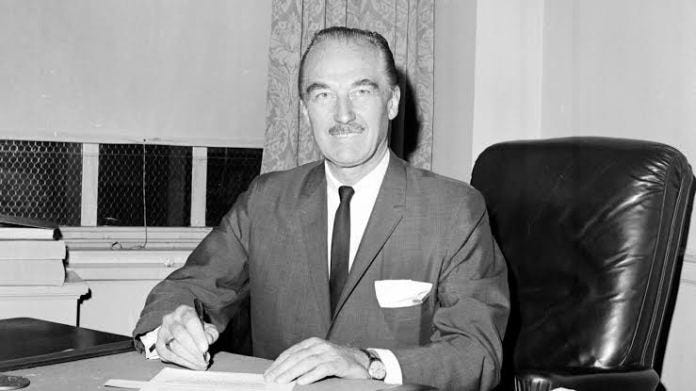
Woody actually wrote a song about the racism of Trump’s father Fred, who rented an apartment to him in New York City.
Morello’s personal commitment to social justice was evident in a typical week last year when he went to rural Alabama to support striking coal miners, and then returned to Los Angeles to support the farmworkers union and, in a separate event, a group of sex workers who were on strike.
At the show, Morello was wearing a hat emblazoned with the logo of the Industrial Workers of the World (IWW), a leftist organization originating in the early 1900s that advocates for worker-controlled industry.
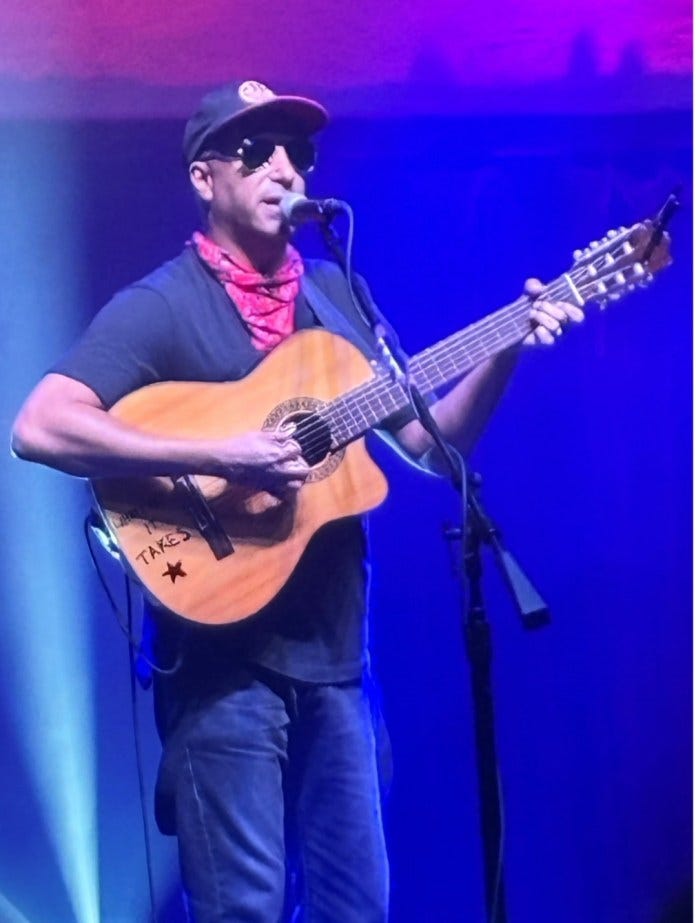
One of Morello’s great heroes was IWW songwriter Joe Hill, who was executed by a Utah firing squad after being framed on a murder charge.
Joe Hill was a great influence on Woody Guthrie and other famous singers like Paul Robeson and Phil Ochs, who wrote tributes to Joe Hill that Morello has performed.

Like Hill, Morello said that he saw Guthrie as a “poetic truth teller” and also the “original punk rocker” whose music “told stories of the downtrodden and oppressed in society” and “gave voice to the struggle for social justice.”
Most of the injustices that Woody sang about in his time are still with us today—including rampant inequality and union busting, rampant militarism and looming fascism.
According to Morello, Woody influenced so many great artists and without him we probably would not have had famous activist anthems like “We Shall Overcome.”
Woody’s spirit can be found today whenever musicians lend their support to working people standing up for their rights. Years after his death, Morello said, Woody should “continue to inspire us to fight harder for a world of peace, justice and equality.”


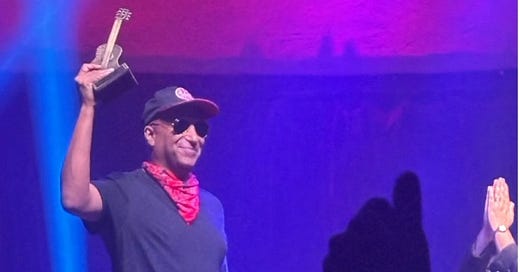



Longshoremen are now on strike. Capitalists are enraged! Let’s hope genocide Joe does not interfere like he did in the railroad strike.
I am 76. I remember sitting in front of a little black and white tv watching the McCarthy hearings. I remember the tension in the room and it was really scary.
Right On! Telling the truth.✌🏼❤️🙏🕉